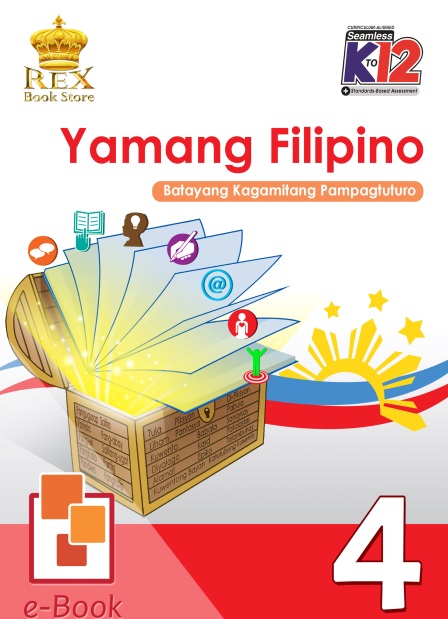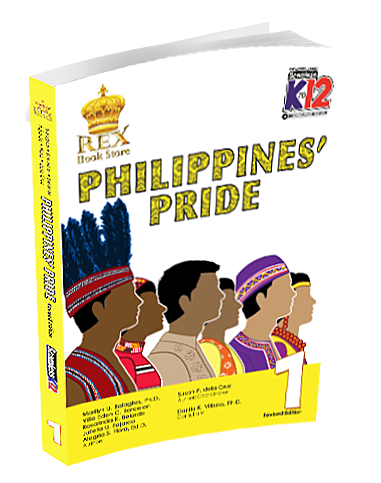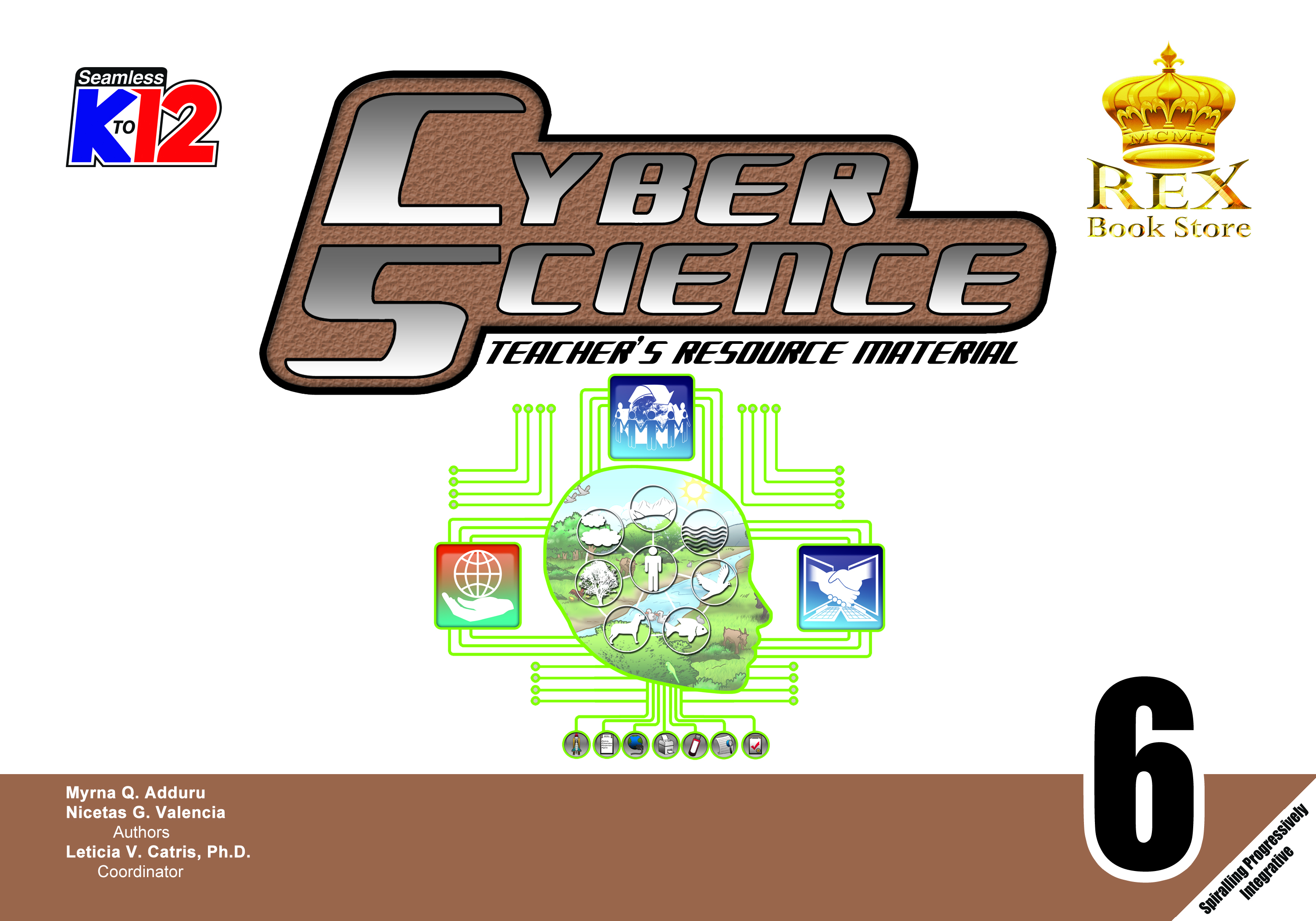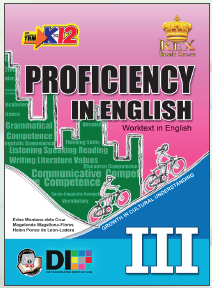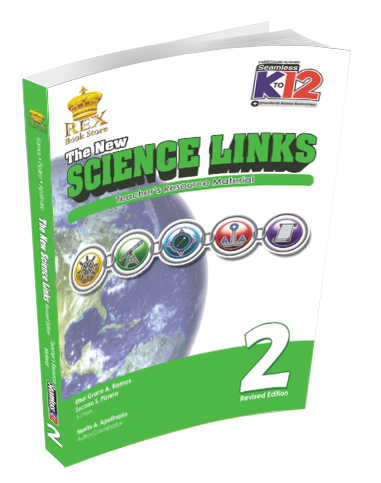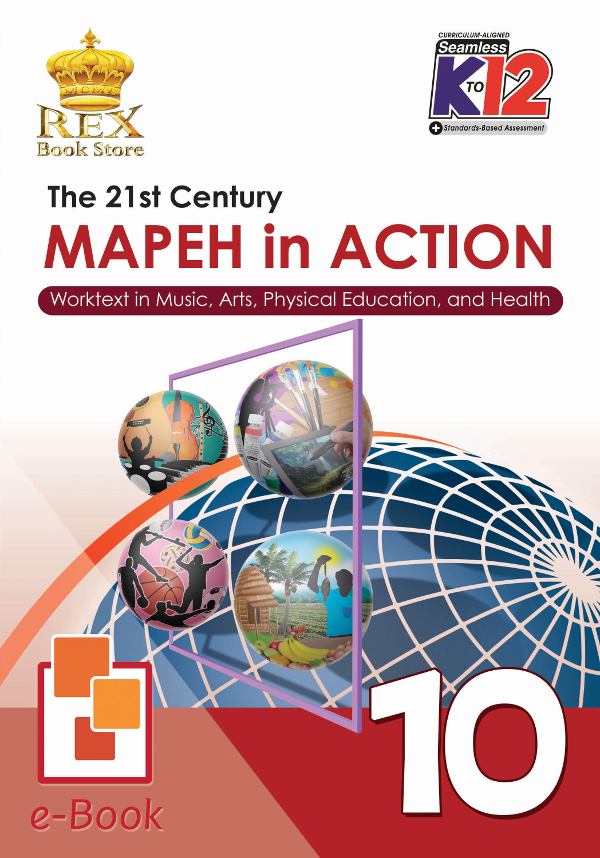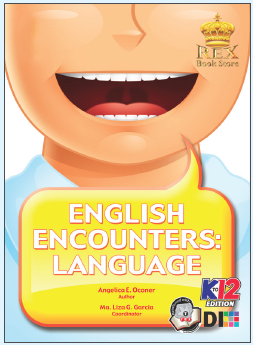Downloads
Essential English 6
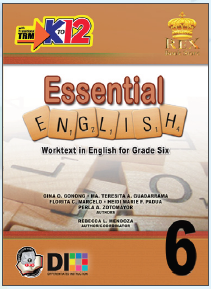 Salient Features:
Gestalt Approaching in Teaching Language Arts.
Salient Features:
Gestalt Approaching in Teaching Language Arts.
Integrated Approach to Language Learning.
Teaching for Understanding Paradigm.
Values-laden Reading Selections.
Aligned with DepEd Curricular Standards.
Application of Authentic Assessment.
Differentiated Instruction (DI).
Filter IMs by :
Chapter 1
Lesson 1
Topic 1

This downloadable activity sheet provides exercises on decoding the meaning of words using structural analysis, and finding the root/base words of unfamiliar expressions.
Topic 6

It provides exercises on decoding the meaning of words using structural analysis, and finding the root/base words of unfamiliar expressions.
Topic 7

It provides exercises on decoding the meaning of words by identifying the prefixes of given words.
Topic 8

It provides exercises on decoding the meaning of words by identifying the prefixes of given words.
Lesson 2
Topic 1

This flash animated digital storybook presents the story with reading comprehension questions on “Pilandokâ€
Topic 2

It provides exercises on decoding the meaning of words using structural analysis, and finding the root/base words of unfamiliar expressions.
Topic 3

It provides exercises on decoding the meaning of words using structural analysis, and finding the root/base words of unfamiliar expressions.
Topic 4

It provides exercises on decoding the meaning of words using structural analysis, and finding the root/base words of unfamiliar expressions.
Topic 5

It provides exercises on decoding the meaning of words using structural analysis, and finding the root/base words of unfamiliar expressions.
Lesson 3
Topic 17

It provides exercises on identifying words with different meanings.
Topic 18

It provides exercises on identifying words with different meanings.
Topic 31

It provides exercises that will enable the students to identify the main idea in given selections and passages.
Topic 32

It provides exercises that will enable the students to identify the main idea in given selections and passages.
Chapter 2
Lesson 4
Topic 19

It provides exercises on identifying words with different meanings.
Topic 23

It provides exercises on understanding the meaning of various idioms, giving examples, and identifying common idiomatic expressions.
Topic 24

It provides exercises on understanding the meaning of various idioms, giving examples, and identifying common idiomatic expressions.
Topic 25

It provides exercises on identifying the following figures of speech: simile, metaphor, personification, hyperbole, onomatopoeia, alliteration.
Topic 26

It provides exercises on identifying the following figures of speech: simile, metaphor, personification, hyperbole, onomatopoeia, alliteration.
Topic 27

It provides exercises on identifying the following figures of speech: simile, metaphor, personification, hyperbole, onomatopoeia, alliteration.
Topic 28

It provides exercises that will enable the students to follow a series of directions in making experiments.
Topic 29

It provides exercises that will enable the students to follow a series of directions in making experiments.
Topic 30

It provides exercises that will enable the students to follow a series of directions in making experiments.
Lesson 5
Topic 1

This flash animated digital storybook presents the story with reading comprehension questions on “The King of Antsâ€
Topic 9

It provides exercises on decoding the meaning of words by identifying the prefixes of given words.
Topic 10

It provides exercises on decoding the meaning of words by identifying the suffixes of given words.
Topic 12

It provides exercises on decoding the meaning of words using context clues.
Topic 13

It provides exercises on decoding the meaning of words using context clues.
Topic 14

It provides exercises on decoding the meaning of words using context clues.
Topic 16

It provides exercises on decoding the meaning of words using context clues.
Lesson 7
Topic 11

It provides exercises on decoding the meaning of words by identifying the suffixes of given words.
Lesson 8
Topic 33

It provides exercises that will enable the students to identify the main idea in given selections and passages.
Topic 34

It provides exercises that will enable the students to identify the main idea in given selections and passages.
Topic 37

It provides exercises on sequencing key concepts found in a selection using story grammar.
Topic 38

It provides exercises on sequencing key concepts found in a selection using story grammar.
Lesson 9
Topic 1

This episode focuses on decoding the meaning of unfamiliar words through context clues.

This episode focuses on decoding the meaning of unfamiliar words through context clues.
Topic 15

It provides exercises on decoding the meaning of words using context clues.
Topic 74

It provides exercises on identifying the different resources that can be used in a library, such as the almanac.
Chapter 4
Lesson 10
Topic 1

This flash animated digital storybook presents the story with reading comprehension questions on “The Parrot Who Wouldn’t Say Catañoâ€

This episode teaches how to notice the significant details from the story being read. It also introduces the three parts of the story, namely the beginning, the middle and the end, while identifying the events based on the plot of the story.

This episode teaches how to notice the significant details from the story being read. It also introduces the three parts of the story, namely the beginning, the middle and the end, while identifying the events based on the plot of the story.
Topic 35

It provides exercises that will enable the students to identify the main idea in given selections and passages.
Topic 36

It provides exercises that will enable the students to note significant details found in given passages.
Topic 42

It provides exercises on organizing ideas by writing a heading and sub
Lesson 11
Topic 21

It provides exercises on understanding the meaning of various idioms, giving examples, and identifying common idiomatic expressions.
Topic 22

It provides exercises on understanding the meaning of various idioms, giving examples, and identifying common idiomatic expressions.
Topic 39

It provides exercises on organizing ideas by writing a heading and sub.
Topic 40

It provides exercises on organizing ideas by writing a heading and sub.
Topic 75

It provides exercises on identifying the different resources that can be used in a library
Topic 76

It provides exercises on identifying the different resources that can be used in a library
Topic 77

It provides exercises on identifying the different resources that can be used in a library
Lesson 12
Topic 1

This flash animated digital storybook presents the story with reading comprehension questions on “Tiger, Tigerâ€
Chapter 5
Lesson 13
Topic 78

It provides exercises on identifying the different resources that can be used in a library, such as the newspaper.
Topic 79

It provides exercises on identifying the different resources that can be used in a library, such as the newspaper.
Topic 80

It provides exercises on identifying the different resources that can be used in a library, such as the newspaper.
Lesson 14
Topic 1

This flash animated digital storybook presents the story with reading comprehension questions on “Code of Citizenship and Ethicsâ€
Topic 50

It provides exercises that will enable the students to give possible outcomes from given facts in a passage.
Topic 51

It provides exercises that will enable the students to give possible outcomes from given facts in a passage.
Topic 62

It provides exercises that will enable the students to draw a conclusion from details and information in the story.
Topic 63

It provides exercises that will enable the students to draw a conclusion from details and information in the story.
Lesson 15
Topic 20

It provides exercises on identifying words with different meanings.
Chapter 6
Lesson 16
Topic 65

It provides exercises about making judgments in a story.
Topic 66

It provides exercises about making judgments in a story.
Lesson 17
Topic 1

Writing a Letter to the Editor
Chapter 7
Lesson 19
Topic 43

It provides exercises that will enable the students to identify the cause and effect of given situations.
Topic 44

It provides exercises that will enable the students to identify the cause and effect of given situations.
Topic 45

It provides exercises that will enable the students to identify the cause and effect of given situations.
Topic 46

It provides exercises that will enable the students to identify the cause and effect of given situations.
Lesson 20
Topic 56

It provides exercises that will enable the students to identify the mood of the situation in a given story.
Topic 57

It provides exercises that will enable the students to identify the mood of the situation in a given story.
Topic 58

It provides exercises that will enable the students to identify the mood of the situation in a given story.
Lesson 21
Topic 1

This episode teaches how to write a diary and keep things and events in their proper order. The episode also allows students to discover the joys of writing.
Topic 59

It provides exercises that will enable the students to identify the mood of the situation in a given story.
Topic 60

It provides exercises that will enable the students to identify the mood of the situation in a given story.
Topic 70

It provides exercises that will enable the students to determine the purpose of a selection’s author.
Chapter 8
Lesson 22
Topic 1

This flash animated digital storybook presents the story with reading comprehension questions on “The Touch of Happinessâ€
Lesson 23
Topic 1

This flash animated digital storybook presents the story with reading comprehension questions on “The Unicorn in the Gardenâ€

This is an audio file of the poem “The Tame Bird Was in a Cage.â€
Topic 53

It provides exercises on describing the traits of characters in a story.
Topic 54

It provides exercises on describing the traits of characters in a story.
Topic 55

It provides exercises on describing the traits of characters in a story.
Lesson 24
Topic 48

It provides exercises that will enable the students to give possible outcomes from given facts in a passage.
Topic 49

It provides exercises that will enable the students to give possible outcomes from given facts in a passage.
Topic 69

It provides exercises that will enable the students to differentiate fact from opinion.



